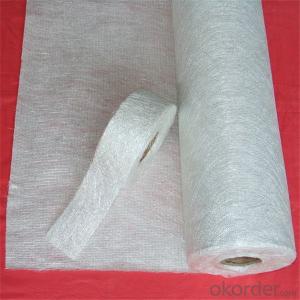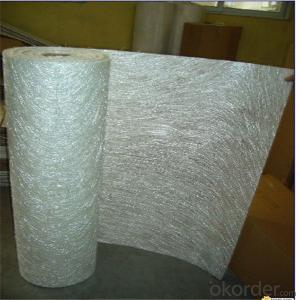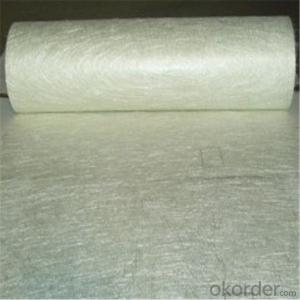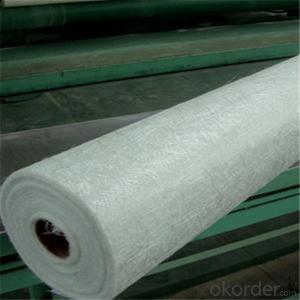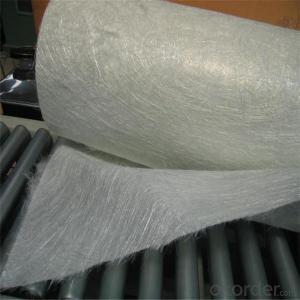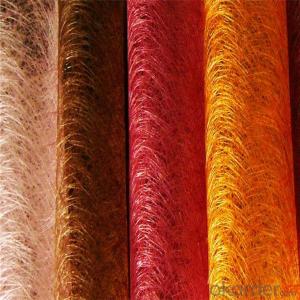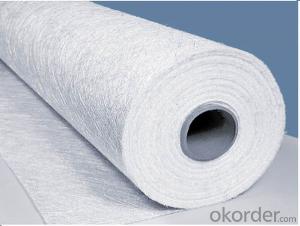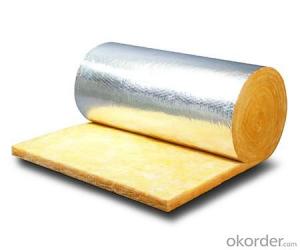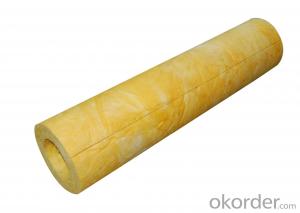Emulison Fiberglass Chopped Strand Mat
- Loading Port:
- Tianjin
- Payment Terms:
- TT OR LC
- Min Order Qty:
- 100 m.t.
- Supply Capability:
- 20000 m.t./month
OKorder Service Pledge
OKorder Financial Service
You Might Also Like
Quick Details
| Technique: | Chopped Strand Fiberglass Mat (CSM) | Dimensions: | according to customer's request | Mat Type: | Stitch Bonding Chop Mat |
| Fiberglass Type: | E-Glass | Softness: | middle | Place of Origin: | Jiangxi, China (Mainland) |
| Brand Name: | cnbm | Model Number: | CSMEP100,CSMEP120,CSMEP200,etc | Product: | Cooling Tower Building Glass Fiber Fiberglass Chopped Strand Mat(csm) |
| Color: | White | Width: | 1040mm,1250mm,ect. | Area weight: | 225-900g/m2 |
| Application: | filament winding,panpel,ect |
Packaging & Delivery
| Packaging Details: | Each roll in one polybag then to an export carton. |
| Delivery Detail: | Within 18 days after confirm order |
Fiberglass Chopped strand mat
Powder Strand Mats Product Features:
1) Uniform density ensures consistent fiberglass content and mechanical properties of the composites products.
2)Uniform powder distribution ensures good mat integrity, little loose fibers and small roll diameter.
3) Excellent flexibility ensures good mold ability with no spring back at sharp angles.
4)Fast and consistent wet-out speed in resins and rapid air lease reduce resin consumption and production cost and enhances productivity and mechanical properties of the end products.
5)The composite products have high dry and wet tensile strength and good transparency.
Picture
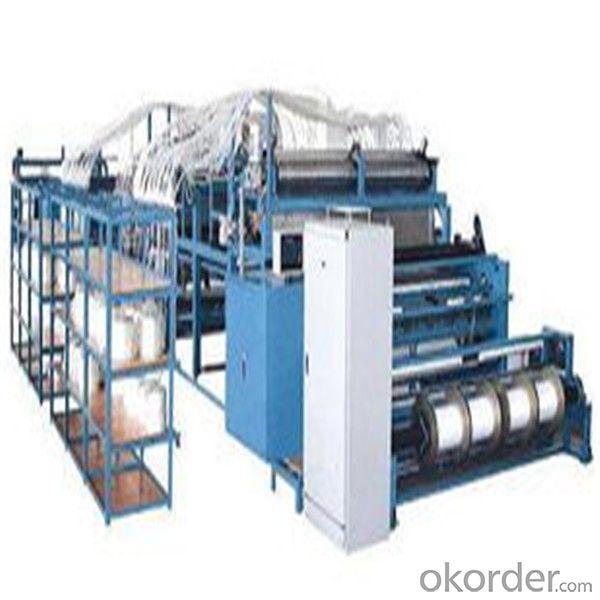
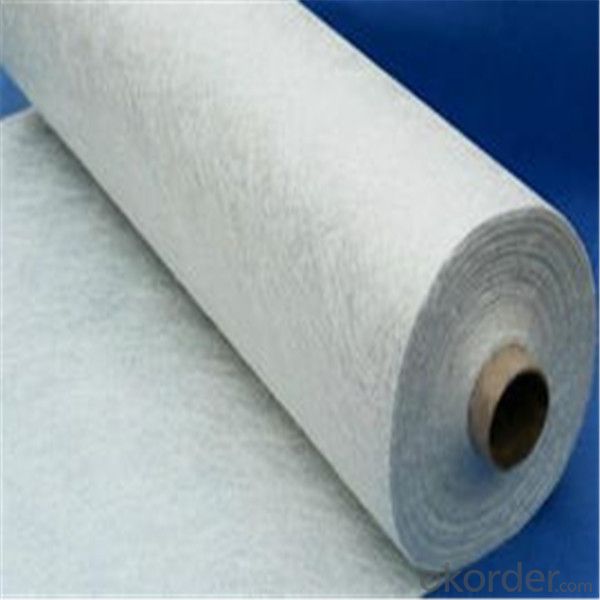
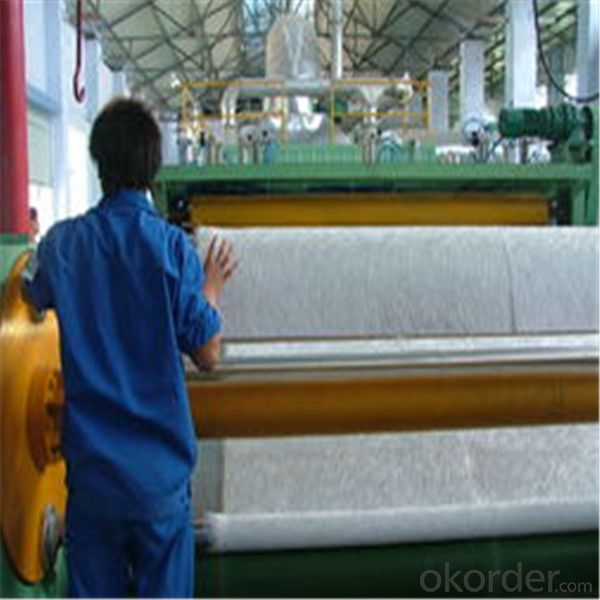
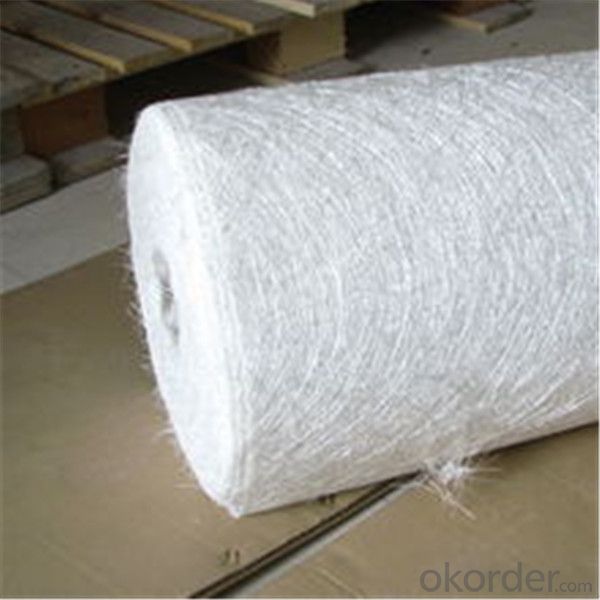
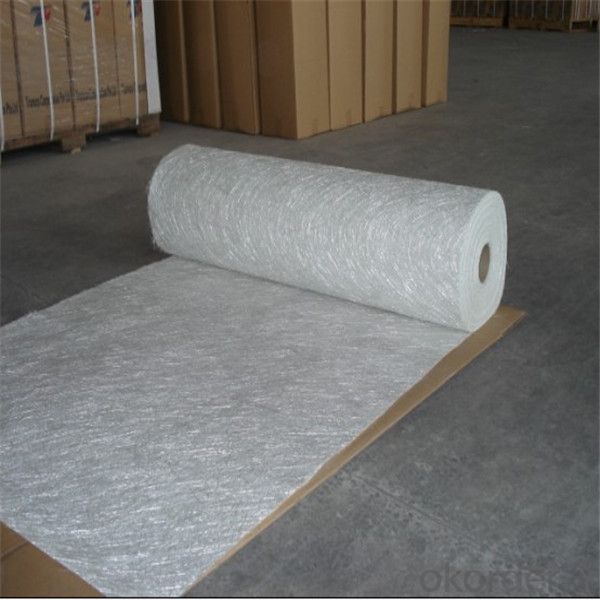
- Q:Can fiberglass mat tissue be used in corrosive environments?
- No, fiberglass mat tissue is not suitable for use in corrosive environments as it is not resistant to corrosion.
- Q:What are the properties of fiberglass mat tissue?
- Fiberglass mat tissue, also known as fiberglass mat or fiberglass matting, is a type of non-woven material made from glass fibers. It possesses several properties that make it suitable for various applications. 1. Strength and durability: Fiberglass mat tissue is known for its high tensile strength, which means it can withstand significant amounts of stress without breaking. This property makes it ideal for reinforcing and strengthening different materials and structures. 2. Lightweight: Despite its strength, fiberglass mat tissue is relatively lightweight, making it easy to handle and transport. This property is particularly advantageous in industries where weight reduction is important, such as aerospace and automotive. 3. Flexibility: Fiberglass mat tissue is flexible, which allows it to conform to curved surfaces and complex shapes. This property makes it versatile and suitable for applications where the material needs to be molded or formed into specific designs. 4. Chemical resistance: Fiberglass mat tissue has excellent resistance to various chemicals, including acids, alkalis, and most solvents. This property makes it suitable for applications in corrosive environments, such as chemical processing plants or storage tanks. 5. Thermal insulation: Fiberglass mat tissue has good thermal insulation properties, meaning it can help to reduce heat transfer. This property makes it useful in applications where heat insulation is required, such as in the construction of walls, roofs, or insulation boards. 6. Fire resistance: Fiberglass mat tissue is inherently fire-resistant and does not contribute to the spread of flames. This property makes it widely used in applications where fire safety is essential, such as in the production of fire-resistant doors, panels, or insulation materials. 7. Sound insulation: Fiberglass mat tissue also offers good sound insulation properties, reducing noise transmission through walls or other structures. This property makes it suitable for use in soundproofing applications, such as in recording studios or automotive interior panels. Overall, the properties of fiberglass mat tissue make it a versatile material with a wide range of applications in various industries, including construction, automotive, aerospace, and marine. Its strength, flexibility, lightweight, chemical resistance, thermal and sound insulation properties, as well as its fire resistance, contribute to its popularity and usefulness in many different applications.
- Q:How does fiberglass mat tissue compare to mineral wool insulation?
- Fiberglass mat tissue and mineral wool insulation have different properties and applications. Fiberglass mat tissue is typically used as a reinforcement material for composites or as a facing material for insulation products. It provides good strength, flexibility, and resistance to moisture. On the other hand, mineral wool insulation is primarily used for thermal and acoustic insulation in buildings. It offers excellent fire resistance, sound absorption, and thermal performance. While both materials have their own advantages, the choice between them depends on the specific requirements of the project.
- Q:How is fiberglass mat tissue used in the production of pipes and tanks?
- Fiberglass mat tissue is commonly used in the production of pipes and tanks due to its unique properties that make it an ideal material for reinforcement and insulation purposes. The tissue is made by combining fine glass fibers with a binder, resulting in a thin, flexible, and porous material. In the production of pipes, fiberglass mat tissue is used as a reinforcement layer to enhance the structural integrity and strength of the pipe. It is typically sandwiched between multiple layers of resin, such as polyester or epoxy, during the manufacturing process. The tissue acts as a reinforcement, providing added strength and rigidity to the pipe, making it more resistant to external pressures, impact, and corrosion. Moreover, fiberglass mat tissue also helps to improve the insulation properties of pipes. The porous nature of the tissue allows it to trap air within its structure, creating a layer of thermal insulation. This insulation helps to maintain the temperature of the fluid or gas within the pipe, reducing heat loss and energy consumption. Similarly, in the production of tanks, fiberglass mat tissue plays a crucial role in reinforcing and insulating the tank structure. It is used as a layer between the tank walls and the resin matrix, providing reinforcement and reducing the risk of structural failure. The tissue also acts as a thermal insulator, helping to maintain the desired temperature inside the tank. Overall, fiberglass mat tissue is an essential component in the production of pipes and tanks. Its reinforcement properties enhance the structural integrity, while its insulation properties improve energy efficiency and temperature control. This makes fiberglass mat tissue a versatile and reliable material for the manufacturing of pipes and tanks in various industries, including oil and gas, chemical processing, water treatment, and many others.
- Q:What is the weathering resistance of fiberglass mat tissue?
- The weathering resistance of fiberglass mat tissue is generally high. It is designed to withstand exposure to various weather conditions, including sunlight, rain, and temperature fluctuations, without significant degradation or loss of performance.
- Q:Can fiberglass mat tissue be used for insulation in shopping malls?
- Yes, fiberglass mat tissue can be used for insulation in shopping malls.
- Q:What are the different fabric finishes available for fiberglass mat tissue?
- Fiberglass mat tissue offers several fabric finishes, each with its own unique properties and characteristics. Let's explore some of the most common finishes available: 1. Polyester: Widely used in fiberglass mat tissue, polyester fabric finishes provide excellent strength and durability. This finish improves tear resistance and tensile strength. 2. Polypropylene: Known for its high resistance to chemicals and moisture, polypropylene fabric finishes enhance water resistance properties. Ideal for applications where moisture or chemical exposure is a concern. 3. Acrylic: Acrylic fabric finishes offer good heat resistance and flame retardancy. They improve the material's thermal stability and fire resistance, making it suitable for high-temperature or fire-prone environments. 4. Nylon: Renowned for its excellent abrasion resistance and toughness, nylon fabric finishes enhance durability and wear resistance. Perfect for applications involving frequent contact or friction. 5. Polyethylene: With outstanding resistance to moisture and chemicals, polyethylene fabric finishes improve water repellency and chemical resistance. Ideal for outdoor or corrosive environments. 6. Polyurethane: Polyurethane fabric finishes provide flexibility and elasticity to fiberglass mat tissue. They enhance the material's ability to withstand bending and stretching without breaking or tearing. When selecting a fabric finish for fiberglass mat tissue, it's essential to consider specific application requirements. Factors such as strength, durability, water resistance, flame retardancy, abrasion resistance, and chemical resistance should all be taken into account to choose the appropriate finish.
- Q:Can fiberglass mat tissue be used for insulation in oil refineries?
- Yes, fiberglass mat tissue can be used for insulation in oil refineries. It is commonly used due to its excellent thermal insulation properties, resistance to high temperatures, and resistance to chemical corrosion.
- Q:Is fiberglass mat tissue resistant to compression?
- Yes, fiberglass mat tissue is resistant to compression. Fiberglass mat tissue is made up of multiple layers of fine glass fibers that are bonded together with a binder. This composition gives it a high level of structural integrity and strength, making it resistant to compression forces. It can withstand heavy loads without deforming or losing its shape. This characteristic makes fiberglass mat tissue widely used in various applications, such as construction, automotive, aerospace, and marine industries, where compression resistance is crucial. Additionally, fiberglass mat tissue is also known for its excellent dimensional stability, which further enhances its resistance to compression.
- Q:Can fiberglass mat tissue be used for acoustic insulation?
- Indeed, acoustic insulation can be achieved by utilizing fiberglass mat tissue. This lightweight material possesses remarkable sound absorption qualities, allowing it to proficiently absorb and diminish sound waves, thereby reducing noise levels and enhancing the acoustic atmosphere. In the realm of construction, fiberglass mat tissue is widely employed to insulate walls, ceilings, and floors in order to minimize noise propagation. Moreover, it finds application in the automotive sector and various other industries that demand sound insulation. With its exceptional porosity and fibrous composition, fiberglass mat tissue proves to be an optimal substance for sound wave absorption and attenuation, rendering it highly suitable for acoustic insulation purposes.
1. Manufacturer Overview |
|
|---|---|
| Location | |
| Year Established | |
| Annual Output Value | |
| Main Markets | |
| Company Certifications | |
2. Manufacturer Certificates |
|
|---|---|
| a) Certification Name | |
| Range | |
| Reference | |
| Validity Period | |
3. Manufacturer Capability |
|
|---|---|
| a)Trade Capacity | |
| Nearest Port | |
| Export Percentage | |
| No.of Employees in Trade Department | |
| Language Spoken: | |
| b)Factory Information | |
| Factory Size: | |
| No. of Production Lines | |
| Contract Manufacturing | |
| Product Price Range | |
Send your message to us
Emulison Fiberglass Chopped Strand Mat
- Loading Port:
- Tianjin
- Payment Terms:
- TT OR LC
- Min Order Qty:
- 100 m.t.
- Supply Capability:
- 20000 m.t./month
OKorder Service Pledge
OKorder Financial Service
Similar products
New products
Hot products
Hot Searches
Related keywords
